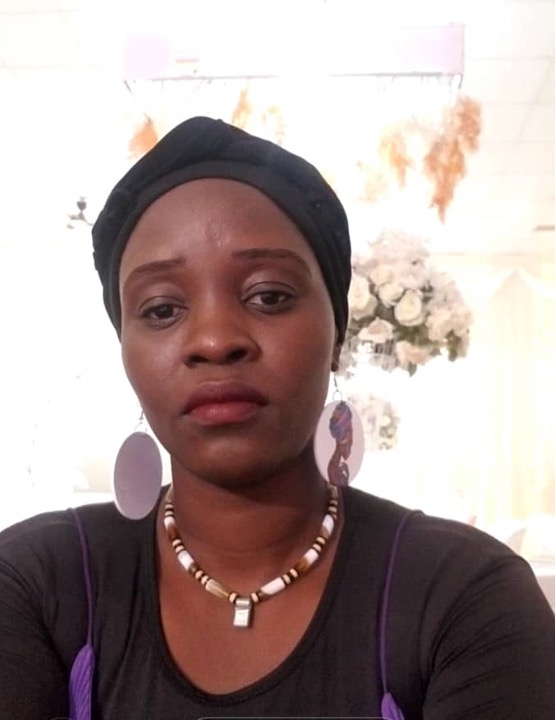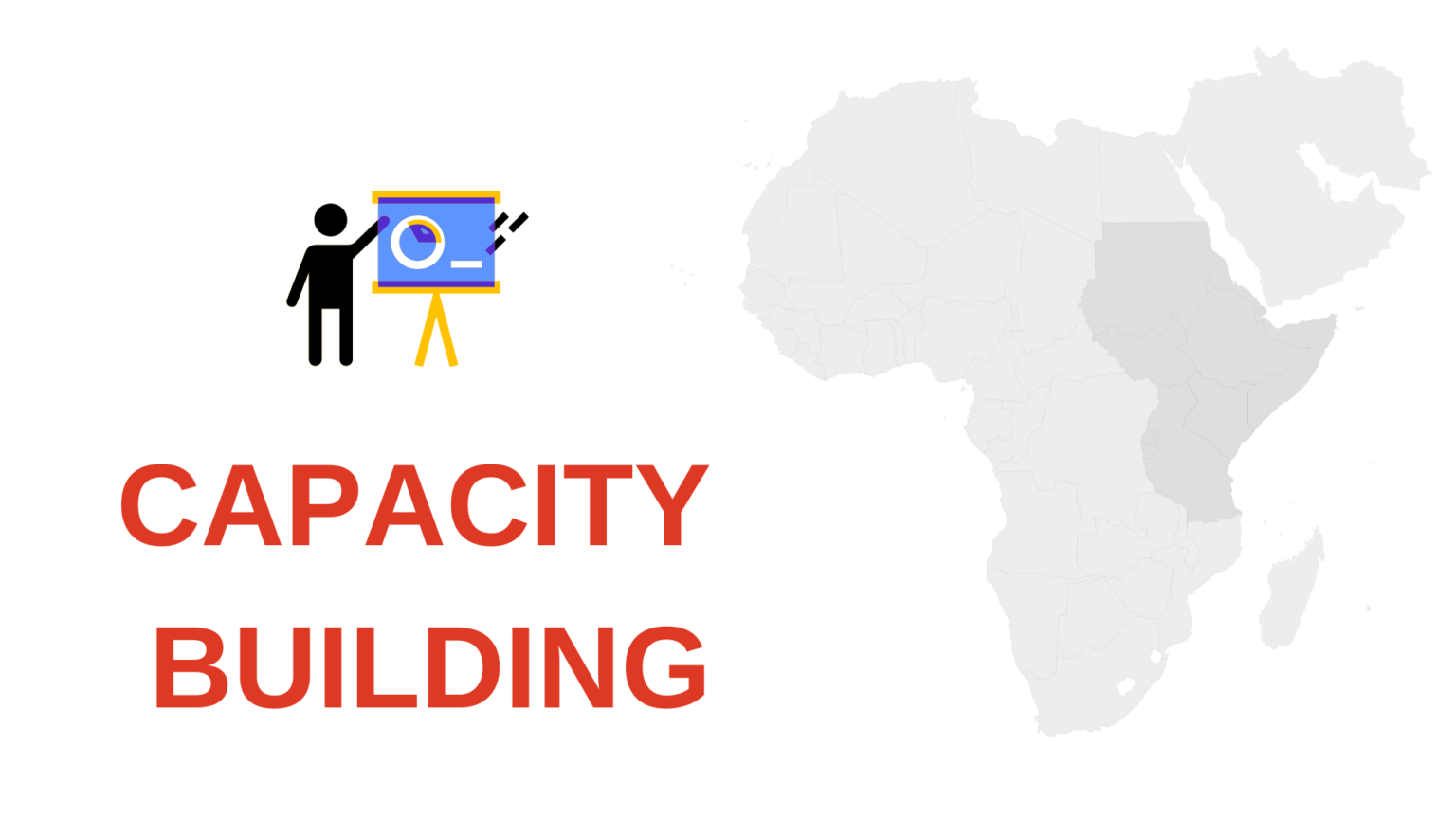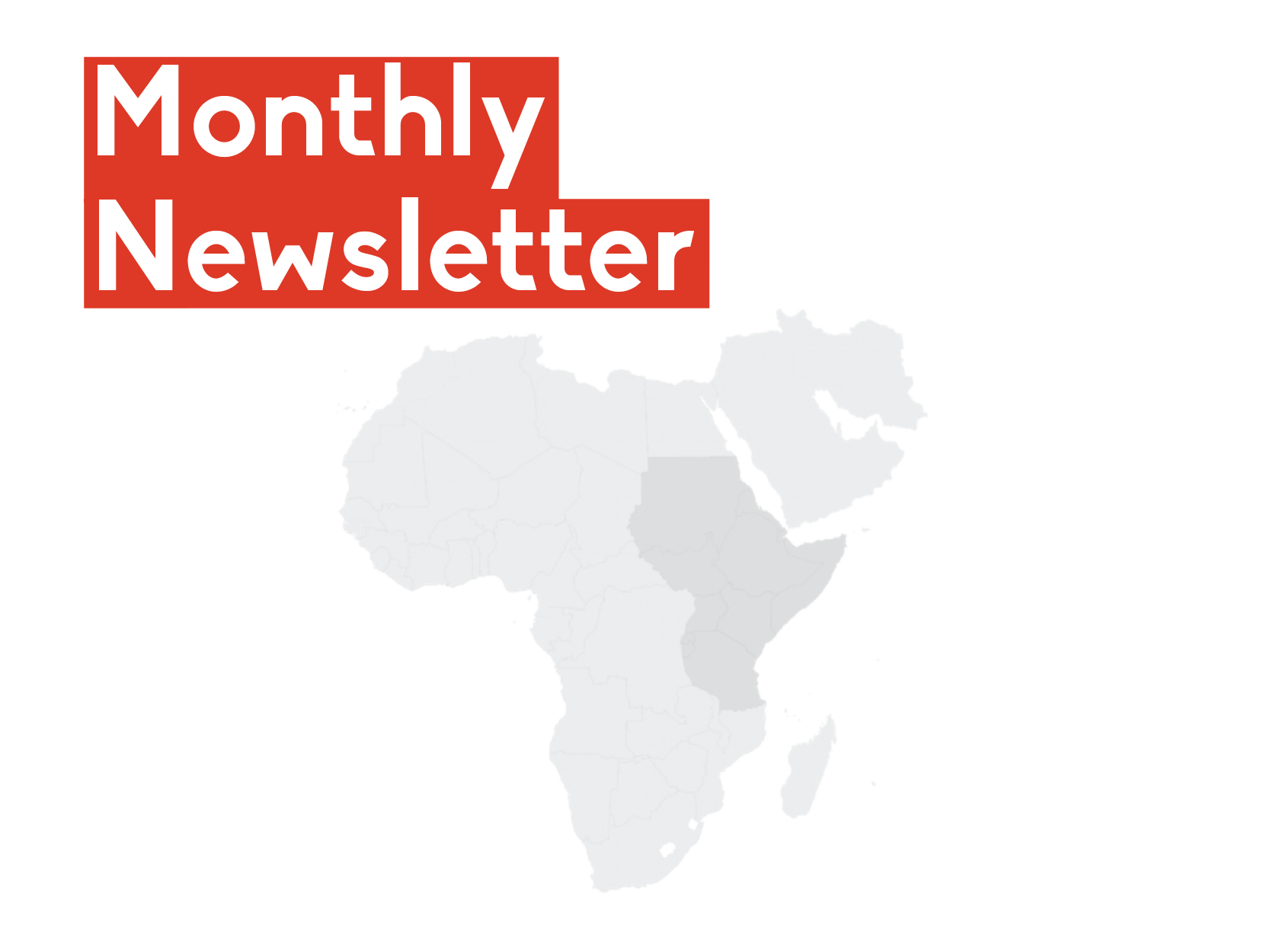Dear Friends,
October has been a very busy season for us at DefendDefenders , with simultaneous, multi-pronged engagements at both the 54th session of the UN Human Rights Council (HRC54) in Geneva, and the 77th ordinary session of the African Commission on Human and People’s Rights(ACHPR77) in Arusha, Tanzania.
At the HRC54, the highlight of our engagement was the resolution on Sudan, the strongest resolution ever adopted on the country, which will enable continuous investigation of rights violations for purposes of accountability. It is our hope that the investigative mechanism will be an important incentive for ending the conflict that has already registered over 9000 fatalities since it broke out more than six months ago. As important to note was the Council’s election of new members. The Human Rights Council remains an important platform for accountability, and I am glad that the General Assembly heeded to my and my colleague’s call to decline Russia’s request to rejoin the council while it maintains its aggression in Ukraine, where it has been accused of committing mass rights violations. Read my full reflections on the session.
For ACHPR77, we commenced our engagements with the release of our bi-annual report on the civic space situation across the East and Horn of Africa, in which we found enduring concerns regarding HRD safety and the state of civic space in almost all of our 11 focus countries. We supported over 40 HRDs from across Africa to travel to Arusha to participate in and conduct in person advocacy on many of these issues at the session, and supplemented this effort with our own statements that challenged the Commission to do more to demand that states abide by its recommendations and those of the wider African human rights systems. You can follow more of our work and engagements at the Commission.
Back home, we continued our work to ensure the safety and wellbeing of HRDs. In October, DefendDefenders received a total of 149 requests for support from HRDs at risk, of which 51 (34%) were approved. Nine (6%) requests were referred to various partner organisations, 73 (49%) requests were rejected, while 16 (11%) requests are still under verification.
Ensuring the safety and wellbeing of HRDs remains our primary focus at DefendDefenders, and to this end, we signed a memorandum of understanding with Justice and Peace Netherlands, formalizing collaboration between our own Ubuntu Hub Cities protection program and Europe’s Shelter City protection initiative. It is our hope that this collaboration will bring us more protection expertise for the benefit of the HRDs.
I invite you to read more on our month’s work.
Hassan Shire
Executive Director, DefendDefenders
Chairperson, AfricanDefenders
Human Rights Defender of the Month:SHIMA BHARE

Shima Bhare Abdalla has never known the luxury and comfort of a stable and safe existence inside her country’s borders. When she was 11, her village was attacked and razed to the ground, sending her family and entire neighborhood scattering into an internally displaced People’s Camp, at the start of the Darfur civil war.
That was in 2002. Shima and her family relocated into Kalma refugee camp in Southern Darfur, where, alongside over 100,000 other displaced persons, they had to forge out a living, under the watch and benevolence of the United Nations – African Union Hybrid Operation in Darfur, known as UNAMID. It is here that Shima’s human rights consciousness came to life.
Updates from DefendDefenders

From 10-11 October, DefendDefenders facilitated a regional convention for digital security practitioners in Kampala, benefiting eight HRDs, (five male, three female)
From 16- 20 October, DefendDefenders conducted a follow-up security training for Sudanese and Ethiopian HRDs where 10 HRDs were interviewed- four Ethiopians and six Sudanese (four men and six women).
From 23- 28 October, DefendDefenders conducted a follow-up training of trainers (ToT) for HRDs from Kenya, Tanzania, Rwanda, South Sudan, Ethiopia, and Somali. 11 HRDs were engaged (six women, and five men)
From 23 – 29 October, DefendDefenders carried out a ToT for HRDs from Eastern Congo in Kinshasa for 12 HRDs (two women, 10 men).
On 21 September 2023, the Sudan Human Rights Defenders Coalition with the support from DefendDefenders held its annual General Assembly meeting in Kampala, bringing 36 members of the coalition (19 male and 17 female). The meeting focused on the progress made, and the urgent business to be concluded, like the adoption of a draft constitution, the election of the Board of Directors and the new steering committee.

DefendDefenders led advocacy efforts for an urgent intervention on the Sudan situation, resulting in an independent international investigation into violations committed in relation to the war in Sudan, established by the UN Human Rights Council. A fact-finding mission (FFM) will be put in place with a mandate to, among other elements, investigate violations and abuses, collect, and preserve evidence, and identify those responsible. This milestone for accountability is fully in line with the joint NGO call, reiterated in a piece released during the session.
In a welcome move, the Council also extended the mandate of the Special Rapporteur on Burundi, following our efforts.
In a heavy session for the East and Horn of Africa, the Council adopted a resolution on Somalia, extending the Independent Expert’s mandate. We partnered with NUSOJ to advocate for rights in Somalia, including by meeting with key stakeholders during HRC54.
Ahead of the Universal Periodic Review (UPR) of Eritrea, we submitted a report highlighting key civic space issues in the country.
DefendDefenders and AfricanDefenders participated in ACPR77, leading a team of over 40 HRDs from across the continent. DefendDefenders delivered a total of six statements at the session, covering the state of civic space on the continent and calling upon member countries to do more to abide by their commitments under several African human rights instruments.
Still on the ACHPR77, DefendDefenders and African Defenders hosted sideevents on the situation of niche HRDs like artists and environmental HRDs, thematic areas including access to information and the right to protest, and country-focused events on Sudan and Uganda, to shed more light on the civic space situation in both countries.
Opportunities
Country Updates:
BURUNDI
Fortuné Gaetan Zongo, the Special Rapporteur on the situation of human rights in Burundi noted that there remains “a shrinking civic space and a growing pressure on political parties, civil society organisations and the media,” ahead of the country’s upcoming municipal and legislative elections in 2025. He pointed to the arrest of Kefa Nibizi, an opponent of President Evariste Ndayishimiyea allegedly for undermining the state’s internal security and the suspension of the National Congress for Freedom, one of the country’s main opposition parties among several cases of systematic assault on political expression as developments that do not speak to a climate of reform regarding Burundi’s human rights situation.
ETHIOPIA
The 54th session of the UN Human Rights council failed to renew the mandate of the International Commission of Human Rights Experts on Ethiopia (ICHREE) which expired on 3 October, despite the commission reporting that there remained a continued risk of human rights atrocities in Ethiopia and emphasizing the urgent need for ongoing independent investigations about the human rights situation in the country. Ethiopia has always opposed the UN-mandated investigation arguing that its own national justice policies provided sufficient guarantees to conduct its own investigations, but the latest report showed that violations especially in the country’s Tigray region continue unabated. Human Rights groups decried the Human Rights Council and the European Union’s failure to renew the ICHREE’s mandate to ensure continued investigations of rights abuses, arguing it was “a devastating blow” to the numerous victims of atrocities in Ethiopia who placed their hopes in the commission.
Ethiopia’s Human Rights Commission (EHRC) reported that a dozen civilians were killed in Ethiopia’s Amhara region in October alone, as part of clashes between state forces and local militiamen. The latest numbers are a continuation of the deteriorating human rights situation in the region, Ethiopia’s most dangerous conflict since the end of the conflict with the Northern Tigray region in November last year.
KENYA
Kenyan authorities banned a news conference set to shed light on some human and environmental rights violations by British soldiers’ during and after the latter’s colonial rule over the East African nation ahead of King Charles’ visit to the country, in what rights groups argued was an infringement on the right to freedom of expression in the country. The Kenyan police prevented access to the conference venue and contacted the property owners to prohibit them from hosting the venue, actions that human rights lawyer James Mwangi said were “bad optics” if the British monarchy is interested in an honest review about its colonial past.
An advocacy group in Kenya sued the country’s Inspector General of Police for allowing religious leaders and lobby organizations to hold homophobic protests against court rulings that affirm the rights of the LGBTQ community. The advocacy group argues that many of such demonstrations have been accompanied by various attacks on the rights of LGBTQI+ people, with over a hundred cases of violence recorded, including discrimination in employment, physical violence, and threats.
RWANDA
In a new report, Human Rights Watch found that the Rwandan government is running a systematic campaign targeting Rwandans abroad who dare to criticize it, throwing their lives in jeopardy. The report records more than a dozen cases of murders, kidnappings, attempted kidnappings, enforced disappearances and physical attacks against Rwandans living abroad, since 2017. Some are forcibly repatriated while for others, their relatives back in Rwanda are regularly locked up without legal justification as a way of pressuring them to reveal their relatives’ whereabouts. The report notes that although it is difficult to find evidence of these extrajudicial killings, several refugees were found to have received threats from members of the Rwandan authorities before their death.
SOMALIA
Somali journalist and Director of Somali Cable TV Abdifatah Moalim Nur was killed in an Al-Shabaab suicide bomb attack in the capital Mogadishu on 16 October, according to Somali police. Nur is the latest in a long list of journalists killed in Somalia, which the National Union of Somali Journalists puts at 50 since 2010, making Somalia one of the most dangerous countries for journalists. The country is ranked 141 out of 180 countries by Reporters Without Borders (RSF)’ annual Press Freedom Index.
SOUTH SUDAN
A new report by the UN commission on human rights in South Sudan has pointed out that the East African nation is suppressing journalists and rights activists through intimidation, surveillance and data harvesting, identifying nearly 100 state-sponsored human rights violations including violence, arbitrary detentions and torture, as well as sexual violence against female reporters. The commission called on the South Sudan government to end this harassment of journalists, rights defenders, and civil society groups and to increase oversight of its security services who are most implicated in the abuses, to restore confidence in the country’s readiness for the presidential elections slated for next year.
TANZANIA
Tanzania digital advocacy group Tanzania Digital Rights Coalition (TDRC) criticized the Tanzanian government’s move to regulate the use of Virtual Private Networks (VPNs), arguing that the move violates the fundamental right to seek, receive and impart information. The move, announced by the Tanzania Communication Regulatory Authority required all individuals and companies that use VPNs for their work to declare so to the Authority and provide all relevant information, including their internet protocol addresses to the commission. TDRC noted that demanding such private information without a compelling reason is evasive, and instead called upon the government to engage citizens and companies to address its concerns while upholding digital rights.
UGANDA
In a shadow report to the African Commission on Human and People’s Rights on the occasion of Uganda’s periodic review, DefendDefenders and the National Coalition of Human Rights Defenders – Uganda pointed out that Uganda continued to fall short on a number of commitments under the African and international human rights system. Among others, they pointed to the persistence of reports of torture and inhuman treatment in Ugandan detention centers as contravening international statutes prohibiting torture, while the limited access to legal services mostly due to the related costs undermine the right to a fair hearing for many Ugandan citizens.
On 6 October, 40 supporters of Uganda’s opposition leader Bobi Wine (President Museveni’s main political opponent) were arrested “for inciting violence” following their plan to organise a welcome demonstration for Bobi Wine as he returned to Uganda. The 40 were promptly arrested and detained in several detention centers across the country, in what the National Unity Platform, Bobi Wine’s party denounced as a flagrant abuse of their civic rights.

